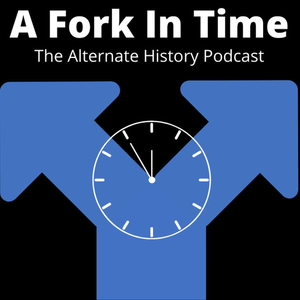
Markets and Marxism: USA, USSR and China
11/08/23 • 59 min
1 Listener
Different models of economic modernity competed during the Cold War.
Washington feared that the transition from colonial peasant societies would provide an opening for Marxists, as in Vietnam. But by 1989, the Soviet economic model was in crisis and attempts to create a market economy led to Putin’s kleptocracy. In China, the disaster of Mao’s Great Leap Forward was followed by successful transformation.
Why did the Soviet Union fail where China succeeded?
This lecture was recorded by Martin Daunton on 31 October 2023 at Barnard's Inn Hall, London
The transcript and downloadable versions of the lecture are available from the Gresham College website:
https://www.gresham.ac.uk/watch-now/pilgrimages-holland
Gresham College has offered free public lectures for over 400 years, thanks to the generosity of our supporters. There are currently over 2,500 lectures free to access. We believe that everyone should have the opportunity to learn from some of the greatest minds. To support Gresham's mission, please consider making a donation: https://gresham.ac.uk/support/
Website: https://gresham.ac.uk
Twitter: https://twitter.com/greshamcollege
Facebook: https://facebook.com/greshamcollege
Instagram: https://instagram.com/greshamcollege
Different models of economic modernity competed during the Cold War.
Washington feared that the transition from colonial peasant societies would provide an opening for Marxists, as in Vietnam. But by 1989, the Soviet economic model was in crisis and attempts to create a market economy led to Putin’s kleptocracy. In China, the disaster of Mao’s Great Leap Forward was followed by successful transformation.
Why did the Soviet Union fail where China succeeded?
This lecture was recorded by Martin Daunton on 31 October 2023 at Barnard's Inn Hall, London
The transcript and downloadable versions of the lecture are available from the Gresham College website:
https://www.gresham.ac.uk/watch-now/pilgrimages-holland
Gresham College has offered free public lectures for over 400 years, thanks to the generosity of our supporters. There are currently over 2,500 lectures free to access. We believe that everyone should have the opportunity to learn from some of the greatest minds. To support Gresham's mission, please consider making a donation: https://gresham.ac.uk/support/
Website: https://gresham.ac.uk
Twitter: https://twitter.com/greshamcollege
Facebook: https://facebook.com/greshamcollege
Instagram: https://instagram.com/greshamcollege
Previous Episode

Twentieth-Century Divas: Barbra Streisand
Uncompromising control of her career and pursuit of a bold vision have made Barbra Streisand a sometimes controversial figure since her debut in Funny Girl, despite her popularity and many awards. She has been stigmatised for being a powerful woman in the entertainment industry: her work as a producer and director have shattered the glass ceiling but not without personal cost. This lecture explores how her insistence on having complete control over her entire artistic output allowed her to recreate the idea of the diva in her own image.
This lecture was recorded by Dominic Broomfield-McHugh on 26 October 2023 at Barnard's Inn Hall, London
The transcript and downloadable versions of the lecture are available from the Gresham College website:
https://www.gresham.ac.uk/watch-now/streisand
Gresham College has offered free public lectures for over 400 years, thanks to the generosity of our supporters. There are currently over 2,500 lectures free to access. We believe that everyone should have the opportunity to learn from some of the greatest minds. To support Gresham's mission, please consider making a donation: https://gresham.ac.uk/support/
Website: https://gresham.ac.uk
Twitter: https://twitter.com/greshamcollege
Facebook: https://facebook.com/greshamcollege
Instagram: https://instagram.com/greshamcollege
Next Episode

Were There Pagan Goddesses in Christian Europe?
This considers a set of superhuman female figures found in medieval and early modern European cultures- Mother Nature, the roving nocturnal lady often called Herodias, the British fairy queen, and the Gaelic Cailleach. None seem to be surviving ancient deities, and yet there is nothing Christian about any of them either. It is suggested that they force us to reconsider our own existing terminology when writing the religious history of Europe.
This lecture was recorded by Ronald Hutton on 8 November 2023 at Barnard's Inn Hall, London
The transcript and downloadable versions of the lecture are available from the Gresham College website:
https://www.gresham.ac.uk/watch-now/pagan-goddesses
Gresham College has offered free public lectures for over 400 years, thanks to the generosity of our supporters. There are currently over 2,500 lectures free to access. We believe that everyone should have the opportunity to learn from some of the greatest minds. To support Gresham's mission, please consider making a donation: https://gresham.ac.uk/support/
Website: https://gresham.ac.uk
Twitter: https://twitter.com/greshamcollege
Facebook: https://facebook.com/greshamcollege
Instagram: https://instagram.com/greshamcollege
Gresham College Lectures - Markets and Marxism: USA, USSR and China
Transcript
In 1989, there were two major events which shaped the modern world.
The first was the brutal suppression of protests in Tran Square on the 4th of June, 1989, and the reassertion of the authority of the Chinese Communist Party, Don Jing embarked on economic reform before the this, uh, event, but the party would remain in control to manage the transition to an economy with market features.
Dunk called it so
If you like this episode you’ll love
Episode Comments
Generate a badge
Get a badge for your website that links back to this episode
<a href="https://goodpods.com/podcasts/gresham-college-lectures-218013/markets-and-marxism-usa-ussr-and-china-36363825"> <img src="https://storage.googleapis.com/goodpods-images-bucket/badges/generic-badge-1.svg" alt="listen to markets and marxism: usa, ussr and china on goodpods" style="width: 225px" /> </a>
Copy




